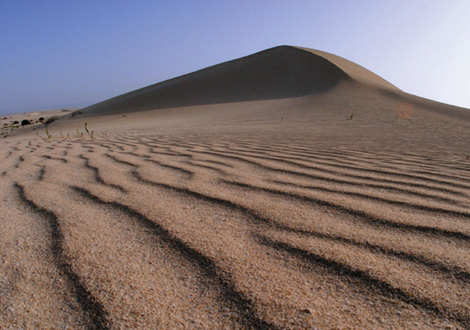Totally unrelated to Spain, but yes with nature and geography, I’ve been busy working on the new britainnature section, a guide to the geography and wildlife of the British Isles.
Archive for the ‘On Spain’ Category
British isles nature
Saturday, June 27th, 200914 killer whales spotted in the Canaries
Wednesday, June 24th, 2009
14 killer whales were observed yesterday for almost eight hours by scientists in the Canaries off Tenerife.
El Pais
Rufous Bush Robin display
Thursday, June 18th, 2009
I very much enjoyed these photos by Mark of a male Rufous Bush Robin (Cercotrichas galactotes) showing off to a female by Mark on the forum.
Read forum post
See all photos on his site
Los Llanos de Libar
Monday, June 15th, 2009Steve has this very nice post on his Cornish Nature web with some lovely photos of a field trip to Los Llanos de Libar on the edge of the Sierra de Grazalema. Check out his embedded recording of Perezi’s frog calls.
Los Llanos de Libar – A Land of Reptiles, Amphibians & Mole Crickets
Shark fishing in Spain
Sunday, June 7th, 2009
The Shark Alliance has denounced the overfishing of sharks for their fins by Spanish ships. 60,000 tons were docked in Spanish ports last year.
“A new TNS Demoscopia poll, commissioned by the Shark Alliance, has revealed that people in Spain are unwittingly eating shark meat. Although 96% of those polled said that they did not eat shark, 76.4% were not aware that “cazón” and “marrajo” are sharks and nearly 33% said that they consumed these products. The results were released in conjunction with a new report from SUBMON, titled Spain: A driving force in shark fishing around the world, that documents serious fishery problems including mislabelling sharks at market.”
Read Spanish unwittingly eat shark (Shark Alliance)
For more than a decade, Spain has been one of the top five world powers with respect to the fishing and marketing of sharks. Spain’s fishing fleets, employing various gears, span the globe, taking sharks as targeted and incidental catch. Approximately 50% of the EU catch of “sharks” (all cartilaginous fishes: sharks, rays and chimaeras) is taken by Spain.
Iberian lynxes for Portugal
Sunday, June 7th, 2009The Spanish government has agreed to “cede” (what a horrible word!) several lynxes to Portugal as part of the reintroduction programme. More, no doubt, on this soon.
EuropaPressAnd also in the areas earmarked for lynx reintroduction (Hornachuelos and Guadalmellato (Córdoba) and Guarrizas) Jaen), a questionnaire has found 68% of persons believe that the presence of the lynx in their counties will boost tourism.
Diario de Córdoba
Dutch elm disease in Spain
Sunday, June 7th, 2009
Dutch elm disease (grafiosis in Spanish) arrived relatively late to Spain. It was first detected in the 1980s, though it may well have reached the country a decade before, and has decimated 80-90% of common elms (Ulmus minor) in Iberia. One of the very few elm stands to have survived in Spain is in Rivas Vaciamadrid, near Madrid, as it is isolated from other trees. Efforts are being made here to conserve the trees here and ensure a genetic bank from which one day to replant elms across the country.
Wikipedia (Spanish)
Bears attracting tourists to Vall d’Aran
Tuesday, June 2nd, 2009
Despite all the overblown furore over the bear hunter attack in the Vall d’Aran, the occassional presence of bears is attracting increasing numbers of tourists to the valley.
Read (La Mañana)
Hvala the bear
And according to Fundación Oso Pardo president Guillermo Palomero bears are no more aggressive than wild boars.
Read (also La Mañana)
Is the future concentrated solar power?
Thursday, May 28th, 2009
The Guardian claims that concentrated solar power, a field in which Spain leads the way, could generate “quarter of world’s energy”.
“Spain is leading the field on CSP: more than 50 solar projects in the country have been approved for construction by the government and, by 2015, it will generate more than 2GW of power from CSP, comfortably exceeding current national targets. Spanish companies are also exporting their technology around the world.”
New biosphere reserves for Spain
Tuesday, May 26th, 2009
Spain has been awarded with two new Biosphere Reserves: the island of Fuerteventura and its surrounding waters and Gerês-Xures, a natural area straddling Portugal and Orense, Spain. Spain now has 40 such reserves. In the photo, Dunas de Corrajeo, in northern Fuerteventura.